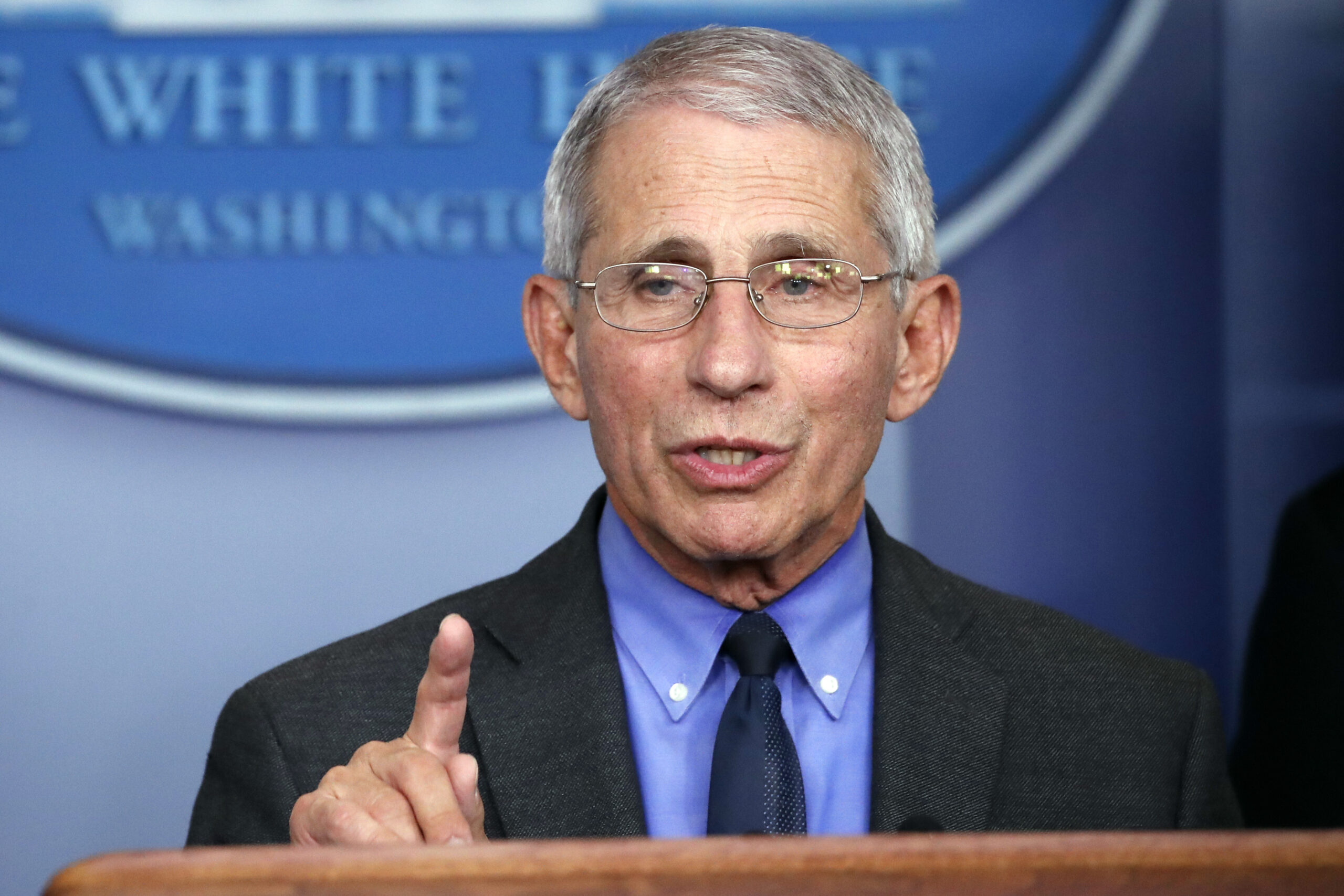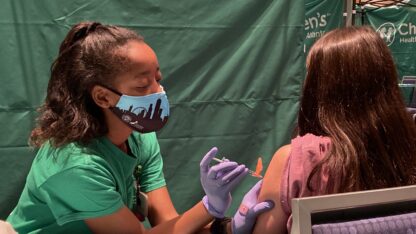Fauci Hails Promising COVID-19 Drug Tested At Emory Hospitals

Anthony Fauci, part of the White House coronavirus task force, has become a familiar face to Americans.
Alex Brandon, File / Associated Press
Preliminary data show patients with advanced COVID-19 who received the antiviral drug remdesivir recovered faster than similar patients who received a placebo, federal health officials said Wednesday.
“The data shows that remdesivir has a clear-cut, significant, positive effect in diminishing the time to recovery,” said Dr. Anthony Fauci, director of the National Institute of Allergy and Infectious Disease, who announced the results.
Of the more than 1,000 people in the clinical trial internationally, 103 were enrolled in Emory University’s part of the study. The Emory patients were the largest enrollment group in the National Institutes of Health study.
The Atlanta patients in the trial were at four hospitals – Emory University Hospital, Emory University Hospital Midtown, Emory Saint Joseph’s Hospital and Grady Memorial Hospital.
The preliminary data show remdesivir, in a subset of patients in the trial, improved recovery time for coronavirus patients from 15 to 11 days.
The drug is the first medication to show a positive effect on COVID-19 patients, Dr. Aneesh Mehta, Emory’s principal investigator in the NIH trial, told reporters Wednesday.
The drug represents “one additional tool to help us get our patients better more rapidly and get them home to their families more quickly,’’ Mehta said.
While it’s not “a silver bullet,’’ remdesivir can be an important part of overall COVID-19 treatment, he added.
The COVID-19 patients in the trial were hospitalized and either had pneumonia or were on oxygen support, Mehta said.
The FDA plans to announce as early as Wednesday an emergency use authorization for remdesivir, according to a senior administration official, the New York Times reported.
Another remdesivir study, conducted in China and published in the journal Lancet, questioned the value of the drug for treatment of severely ill patients but left open the possibility that it might be useful for others, the Times reported.
Mehta said that unlike the China study, the NIH trial had patients from several countries. He added that the China study didn’t enroll enough patients.
In a statement, Gilead Sciences, the maker of remdesivir, said it was “aware of positive data emerging from” the study by Fauci’s institute, known as NIAID. “We understand that the trial has met its primary endpoint and that NIAID will provide detailed information at an upcoming briefing,” it said.
Gilead said that remdesivir is an experimental medicine that does not have established safety or efficacy for the treatment of any condition.
Fauci, who as part of the White House coronavirus task force has become a familiar face to Americans, said that “although a 31% improvement doesn’t seem like a knockout 100%, it is very important proof of concept. What it has proven is that a drug can block this virus.”
The NIAID said results “also suggested a survival benefit, with a mortality rate of 8.0% for the group receiving remdesivir versus 11.6% for the placebo group.”
The drug does not show significant side effects for patients, Mehta said.
Separately, about two-thirds of COVID-19 patients who were given remdesivir on a ‘‘compassionate use’’ basis showed clinical improvement, according to Gilead results published recently in the New England Journal of Medicine.
Remdesivir was previously tested in humans with Ebola and has shown promise in animal models for treating Middle East respiratory syndrome (MERS) and severe acute respiratory syndrome (SARS), which are caused by other coronaviruses.








